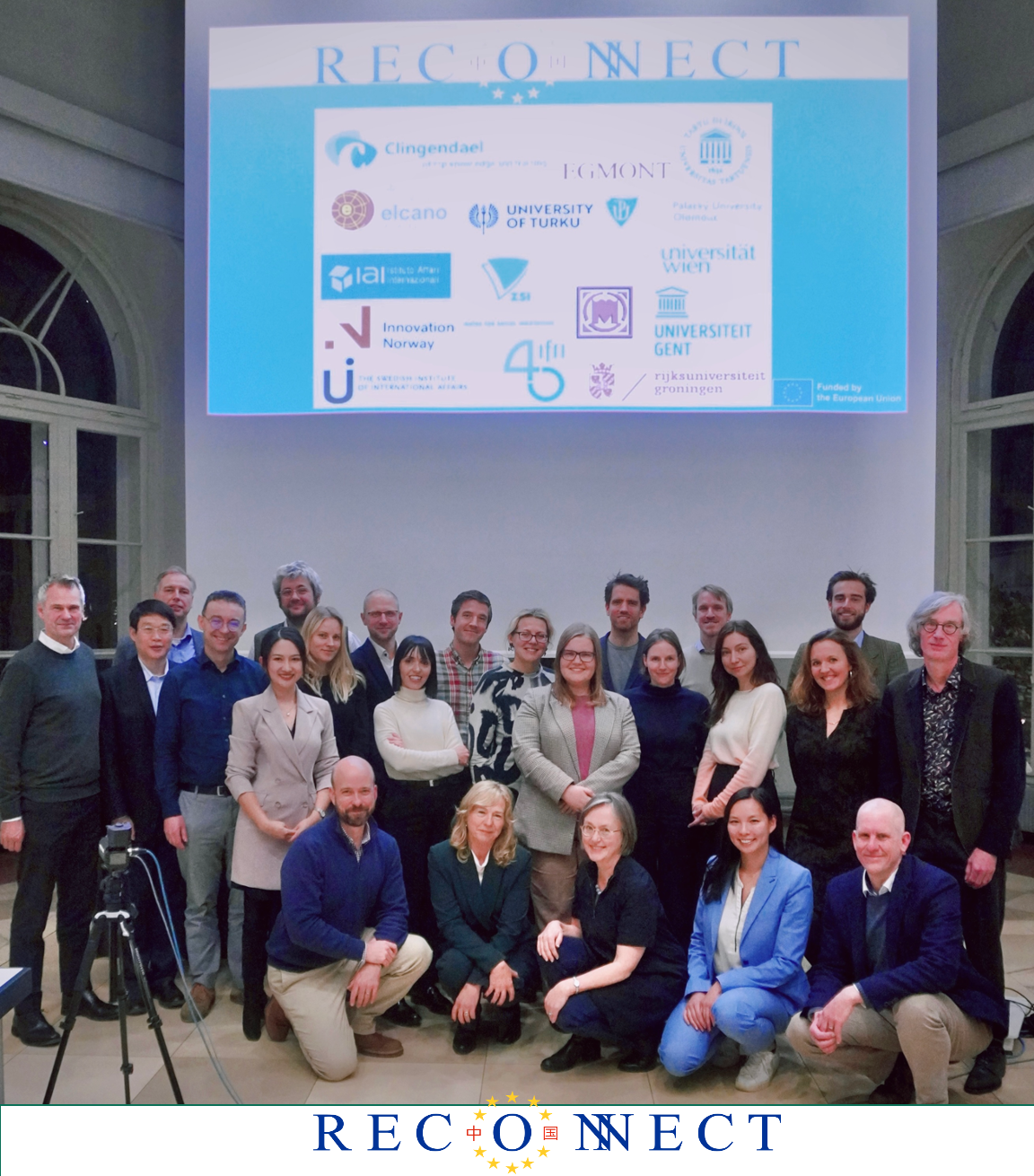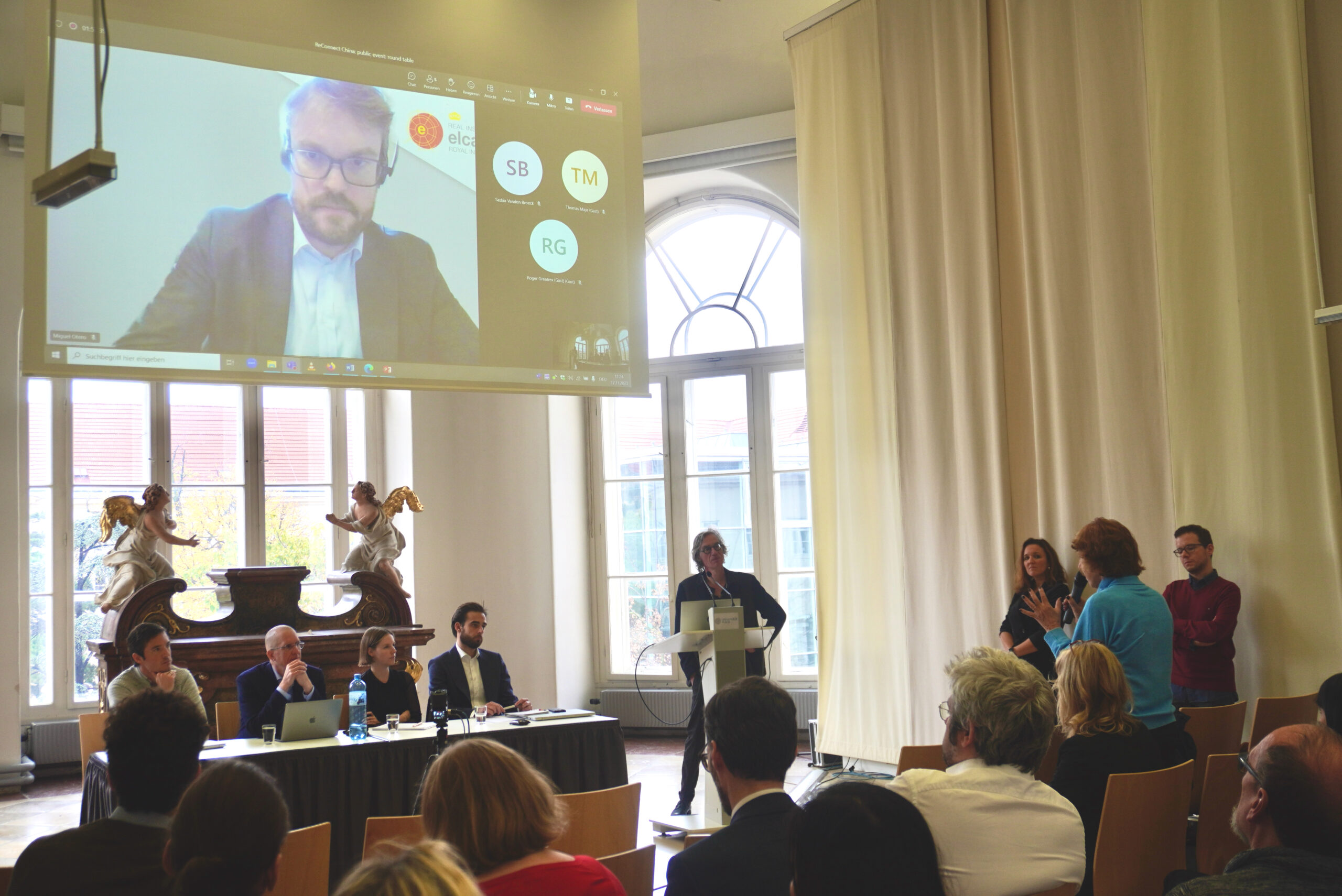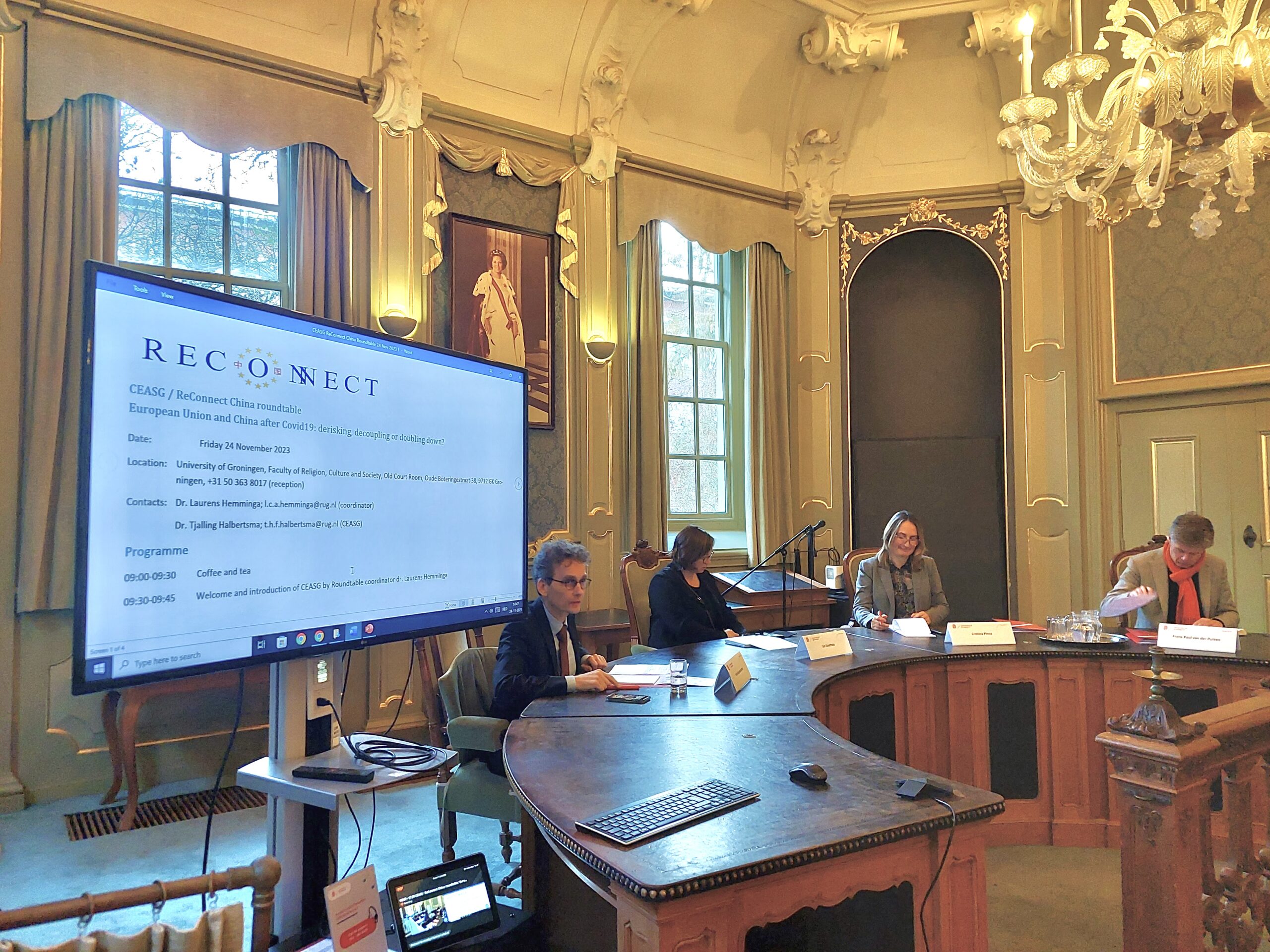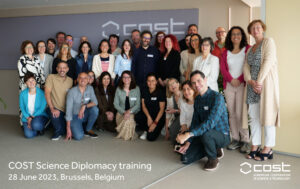ReConnect China, a Horizon Europe funded project aiming to generate independent knowledge for a resilient future with China for Europe and its citizens, marked its one-year milestone hosting a momentous second consortium meeting and a public round table in Vienna from November 16-17.
Building on the momentum generated since its kick-off meeting in Ghent in November 2022, representatives from ReConnect China’s 15 partner institutions from across Europe converged in Vienna for two days. The consortium meeting provided a platform for reflection on the project’s achievements in its inaugural year and facilitated strategic planning for the future. Work package leaders together with consortium partners delved into the progress made since the project’s inception, highlighting key accomplishments and addressing the challenges that have been met. The collaborative spirit was palpable as partners engaged in discussions to set a cohesive path forward, aligning their efforts to enhance the project’s impact in the coming year.

The ReConnect China public roundtable on November 17
The public round table (organised in a hybrid format), a focal point of the Vienna meetings, gave stage to ReConnect China’s research conducted and the results generated over the first year. The experts leading these activities within the project delivered presentations covering the four research priorities of ReConnect China. Prof. Bart Dessein, in his capacity as project coordinator, opened the discussion with some introductory words. Having been stimulated by the inputs of experts, several questions were addressed to the speakers by the – predominantly – Austrian audience (invitations for this roundtable focussed on Austrian stakeholders; participants came from institutions like Austrian Council for Research, Science, Innovation and Technology Development, Austrian Economic Chamber, Vienna Institute for Intl. Economic Studies, Austrian Institute for Intl. Affairs, University of Vienna, Austrian Research Promotion Agency, and the Federal Chancellery of Austria).
Below the presentation titles of the roundtable:
- “What does ReConnect China do?” Presented by Prof. Bart Dessein, Scientific Coordinator of ReConnect China, Ghent University. Prof. Dessein provided an engaging introduction to the project, unveiling its core objectives and presenting significant research outcomes from the first year.
- “Europe’s Research Cooperation with China – Risks and Opportunities” Presented by Philipp Brugner, Researcher, Senior Project Manager, ZSI. Philipp Brugner explored the risks and opportunities associated with Europe’s research collaboration with China.
- “The Economy of China: The Rise of the Electric Car Industry” Presented by Miguel Otero, Senior Analyst, Elcano Institute, ES. Miguel Otero delved into the economic landscape of China, specifically focusing on the burgeoning electric car industry.
- “China’s Domestic Politics – Building a Database for Better Understanding Domestic Political Developments” Presented by Prof. Christian Göbel, University of Vienna. Prof. Göbel shared insights into the development of a comprehensive database aimed at enhancing the understanding of China’s domestic political landscape.
- “China’s Foreign Policy Against the Background of the EU Strategy De-Risking” Presented by Astrid Pepermans, Senior Research Fellow, and Victor De Decker, Research Fellow, Egmont Institut, BE. Astrid Pepermans and Victor De Decker elucidated China’s foreign policy within the context of the EU’s De-Risking strategy.
- ReConnect China Roundtable_final agenda

The public round table served as a platform for knowledge sharing and facilitated a meaningful dialogue on the complexities of EU-China relations.
For more information about ReConnect China and its updates, please also follow us on Twitter, WeChat and Weibo.



